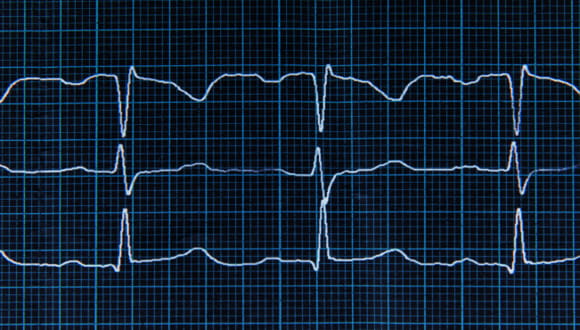Most people have experienced an arrhythmia, or irregular heartbeat. Although usually harmless, sometimes an arrhythmia increases your risk of a more serious heart condition.
"While most arrhythmias are harmless, some may be a sign of a more serious heart condition or require treatment," says Dr. Rajesh Venkataraman, cardiac electrophysiologist at Houston Methodist.
What are the types of arrhythmia?
Types of arrhythmia include:
- Atrial fibrillation (AFib) — the heart beats too fast and irregularly in its upper chambers, increasing your risk of stroke.
- Bradycardia — the heart beats too slowly. This can be caused by a health problem, such as an underactive thyroid, or by taking certain medications, such as beta blockers. You may require a pacemaker if your slow heart rate is associated with fatigue.
- Tachycardia — the heart beats too fast.
- Ventricular fibrillation — the heart quivers instead of pumps, leading to loss of consciousness or death without an immediate shock to the heart.
- Ectopic beats — the heart has at least one extra beat.
How is arrhythmia treated?
Arrhythmias may not require treatment, but individuals with significant symptoms may be at increased risk for more serious conditions. Certain arrhythmias also impair the heart's efficiency and ability to circulate blood. Treatment options depends on the arrhythmia and its severity, and include:
Lifestyle changes, such as:
- More exercise
- Improved diet
- Better stress management
- Quitting smoking
- Limiting caffeine and alcohol
Medications, including:
- Sodium-channel blockers
- Beta blockers
- Potassium-channel blockers
- Calcium-channel blockers
- Digitalis, which may slow or control tachycardia
Cardioversion, which uses drugs or an electrical shock to reset the heart's regular rhythm.
Catheter ablation, which uses threading catheters through blood vessels to the heart to deliver radiofrequency energy, destroying portions of the heart causing the arrhythmia.
Left atrial appendage occlusion, which blocks the left atrial appendage to reduce stroke risk for those with AFib who can't take blood thinners.
Implantable devices, such as an artificial pacemaker, for patients with bradycardia.
Next Steps:


